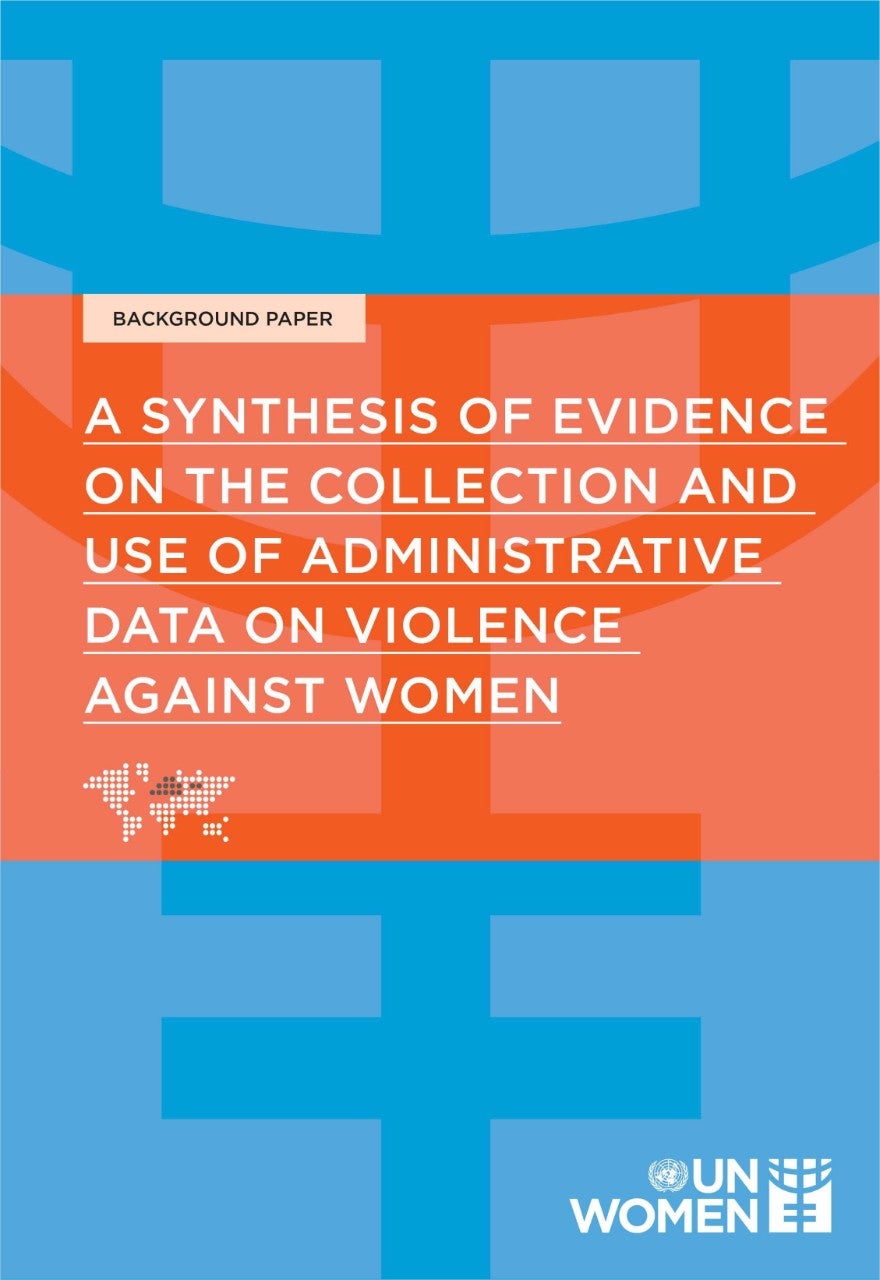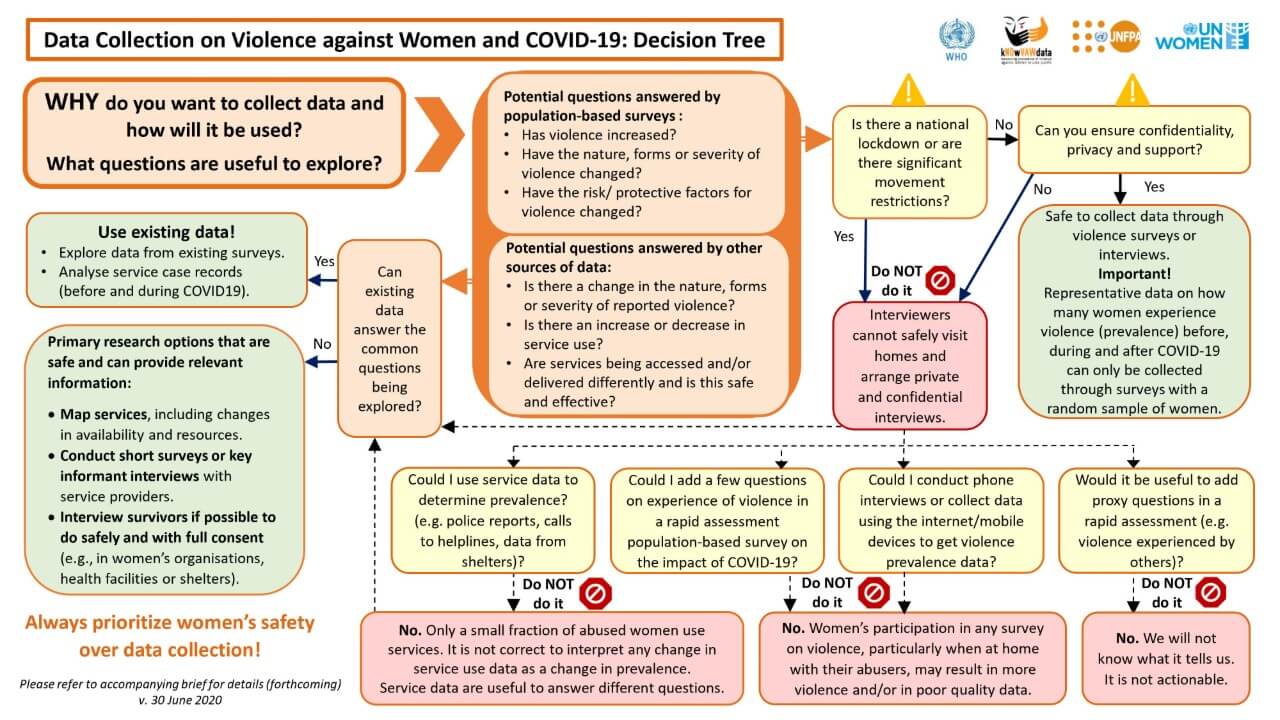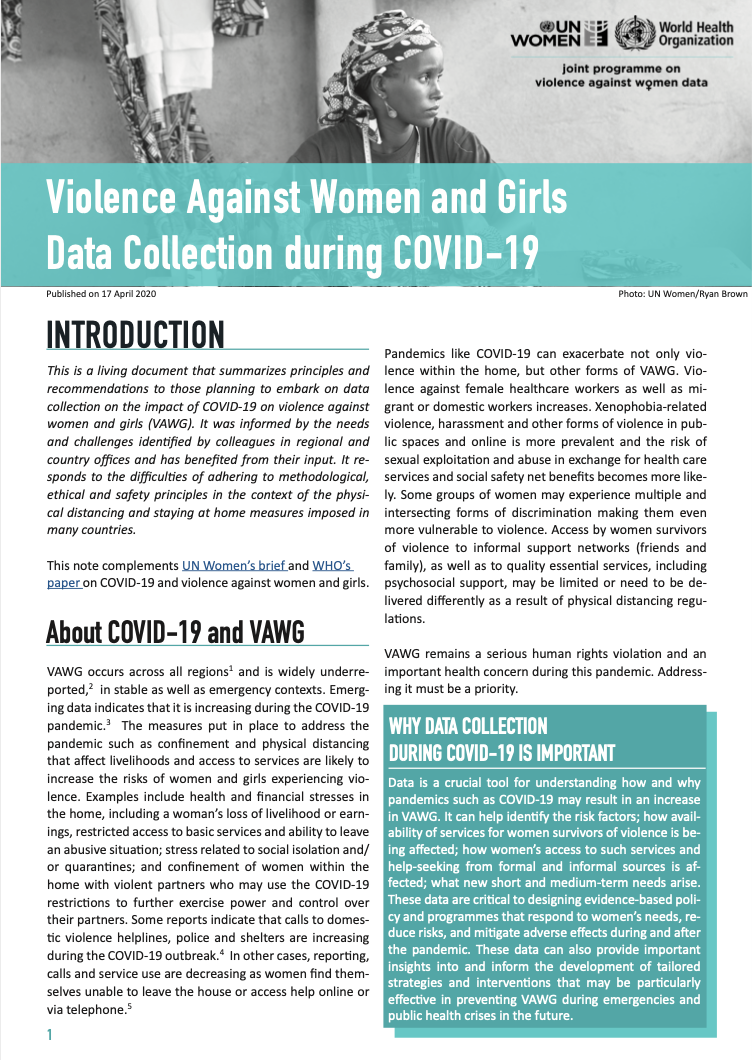Research and data: Ending violence against women
Data is critical to providing a better understanding of the nature, magnitude, severity, and frequency of violence against women and girls. Better data can help us understand the types and forms of violence women experience, whether or not survivors receive support, risks and consequences, costs of this violence, as well as what works and what doesn’t, to prevent and respond to violence against women and girls.
Research and statistics are valuable tools for developing evidence-based policies and interventions to end violence against women and girls. Effective solutions must be informed by data, and data collection based on globally agreed standards is high on international and government agendas.
There remains a significant gap of comprehensive, reliable, comparable, and up-to-date data on violence against women and girls. While countries are increasingly using similar definitions and approaches, gaps remain in the availability of data on some forms of violence, such as femicide, sexual harassment, and online violence.
Our solutions
In 2006, UN Women established a global database to collect the actions taken by governments to address violence against women and girls. The database includes country profiles with data on various forms of violence. The Global Database on Violence against Women identifies effective policy responses to prevent and address violence against women around the world.
UN Women works with partners to enhance data collection, analysis, reporting, and use as part of our comprehensive approach to end violence against women and girls. In a critical step, UN Women is currently partnering with the World Health Organization (WHO) on a five-year global programme (2018–2022) to strengthen methodologies for measuring violence against women and improve data collection at the country and regional levels.
In Mexico, for example, a single study on femicide examining data across 35 years included an analysis of death certificates and injury reports and recommended ways to strengthen processes and public policy to help women live a life free of violence.
In Georgia, a nationwide study on violence against women was completed in 2017 that included, for the first time, data on the prevalence of sexual harassment and stalking. The data was directly used to advocate for sexual harassment legislation, and in 2019 the country’s first sexual harassment law was adopted.
In 2019, with support from UN Women, Kosovo (under UNSCR 1244) established a new centralized database for cases of domestic violence to enable the monitoring and prosecution of cases and ensure accountability at national and local levels.


